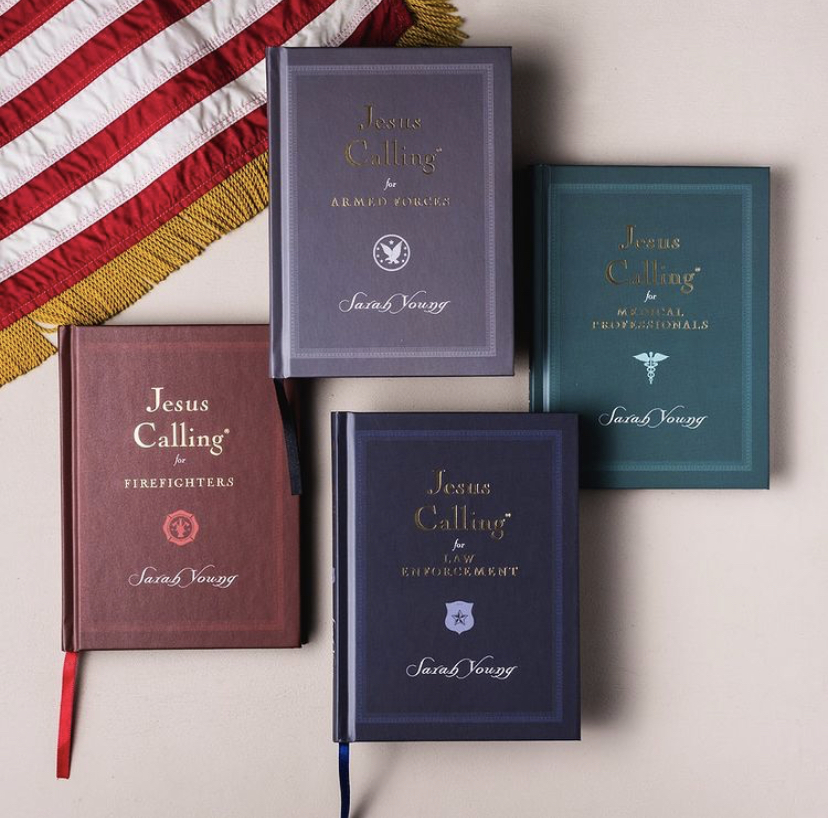Addiction Steals, God Heals: Ryan Scheckler and Henriët Schapelhouman

Ryan Sheckler: There’s so many people in society right now, they’re just so scared to show emotion and so scared to be themselves. And you shouldn’t be. You know, you just shouldn’t be. But everyone in their own time, it takes time to learn how you want to be and what you believe in.
Addiction Steals, God Heals: Ryan Scheckler and Henriet Schapelhouman – Episode #232
Narrator: Welcome to the Jesus Calling Podcast. Addiction is a condition that has extensive consequences. Relationships can be torn apart and trust shattered. The good news is that there is hope for the addict, and for the ones who love them, and no one ever has to walk through recovery alone. Our guests this week have both experienced addiction first hand—one who battled with addiction himself, and another who stood by as an addict she loved spun farther and farther out of control: pro skateboarder Ryan Sheckler and Pastor Henriët Shapelhouman.
When Ryan Sheckler was just eighteen months old, he found his dad’s old-school skateboard and taught himself to push it around using one knee, and eventually stood up on the skateboard. When he was thirteen, Ryan became one of the world’s youngest professionals in the sport, winning multiple competitions. At seventeen, he was the star of his own MTV reality show, The Life of Ryan.
While Ryan’s talent and fame grew, so did the lack of structure that was around him. He was pulled into the drinking and partying lifestyle that came with his success, and eventually found himself with an alcohol addiction that threatened to bring down all the hard work he had put into his sport and his life. Ryan shares his journey to that moment where he knew things had to change.
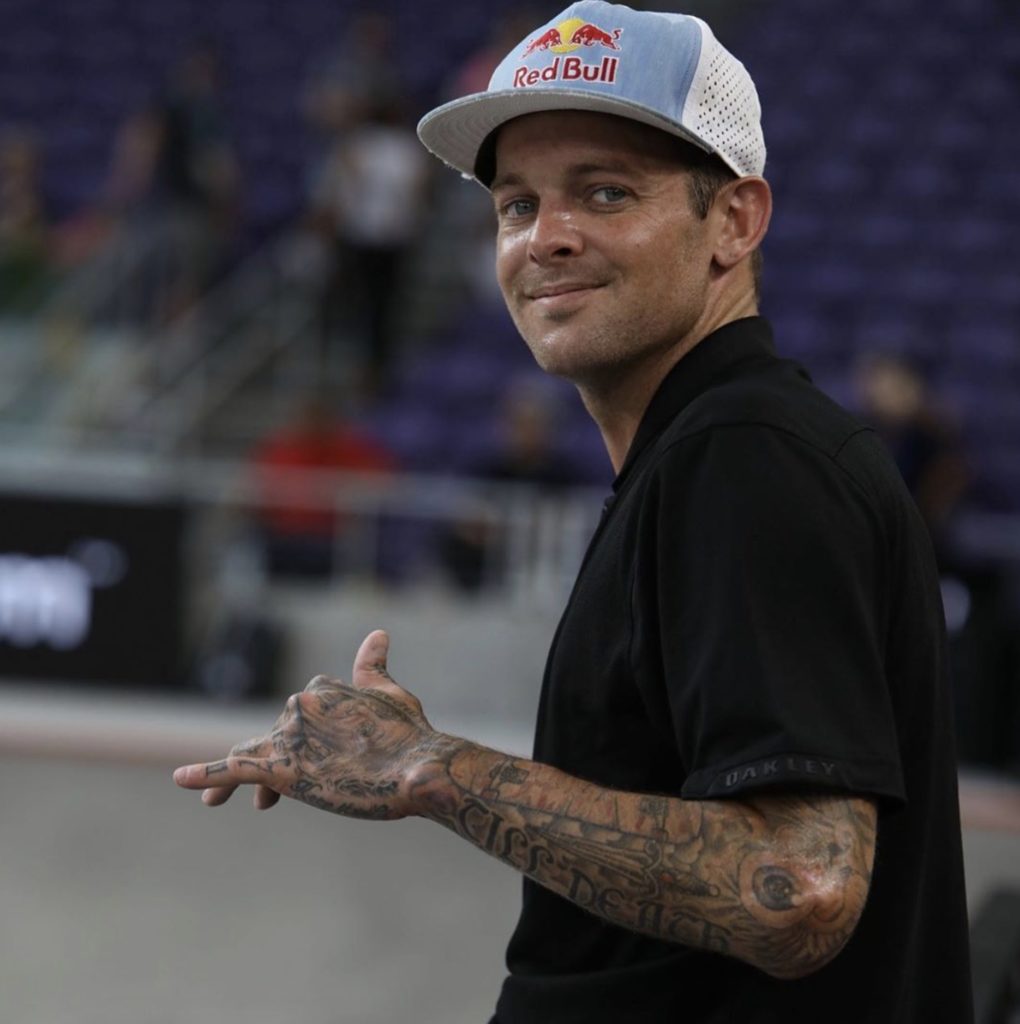
Ryan Sheckler: I am Ryan Sheckler. I’m thirty years old. I skateboard professionally. I live in San Clemente, California. And man, I’ve been skating for twenty-eight years now, turned pro when I was thirteen. And that’s kind of when the whirlwind started off my life and my career. And I had no idea the amazing life lessons I was gonna learn and be able to overcome in that period of time. These last twenty-eight years has been packed.
A Kid With A Gift for Skateboarding
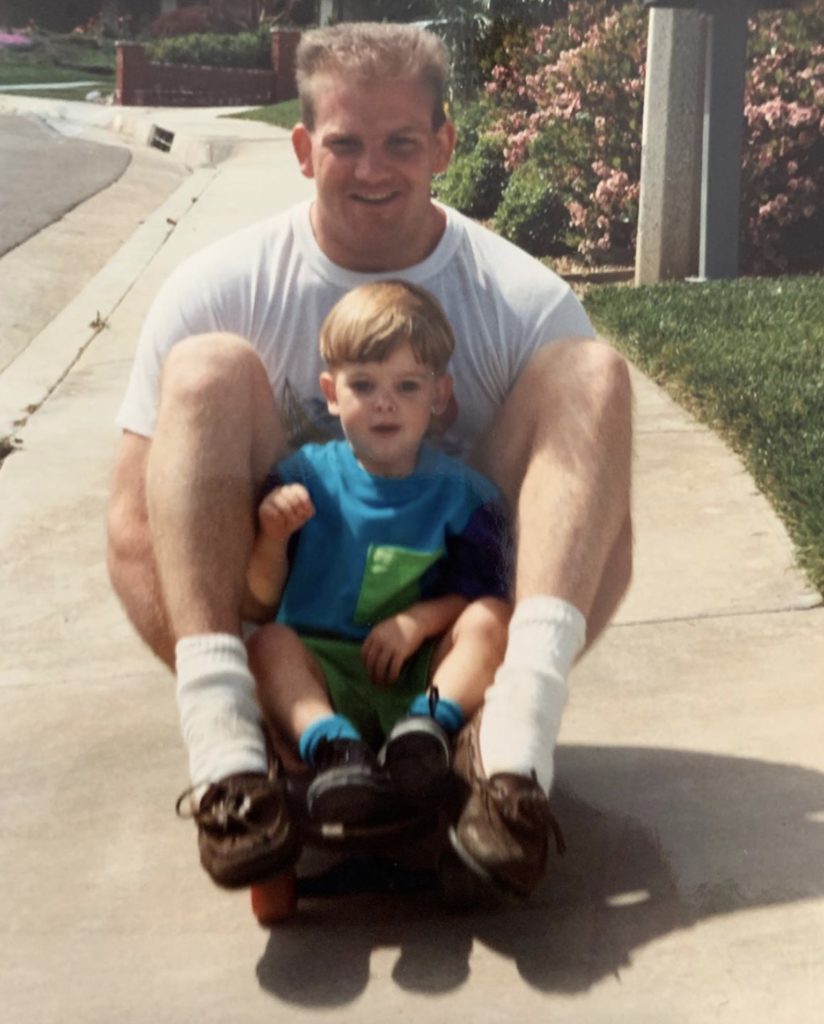
I was always a crazy kid. I was always climbing up buildings, jumping off things, like on the roof. Loved the trampoline. Loved just anything that was adrenaline-based.
I think when I was six, maybe turning seven, I won my first contest. And the emotions that I went through that day were so crazy because I was prepared. I was ready for the contest. And then the second right before they called my name, I started crying. And I was so emotional, but not sad. I couldn’t control it. [That’s] how much I wanted it. My dad hugged me, and we talked and it was all good. Then we said a prayer, and then I went out and I won my first contest.
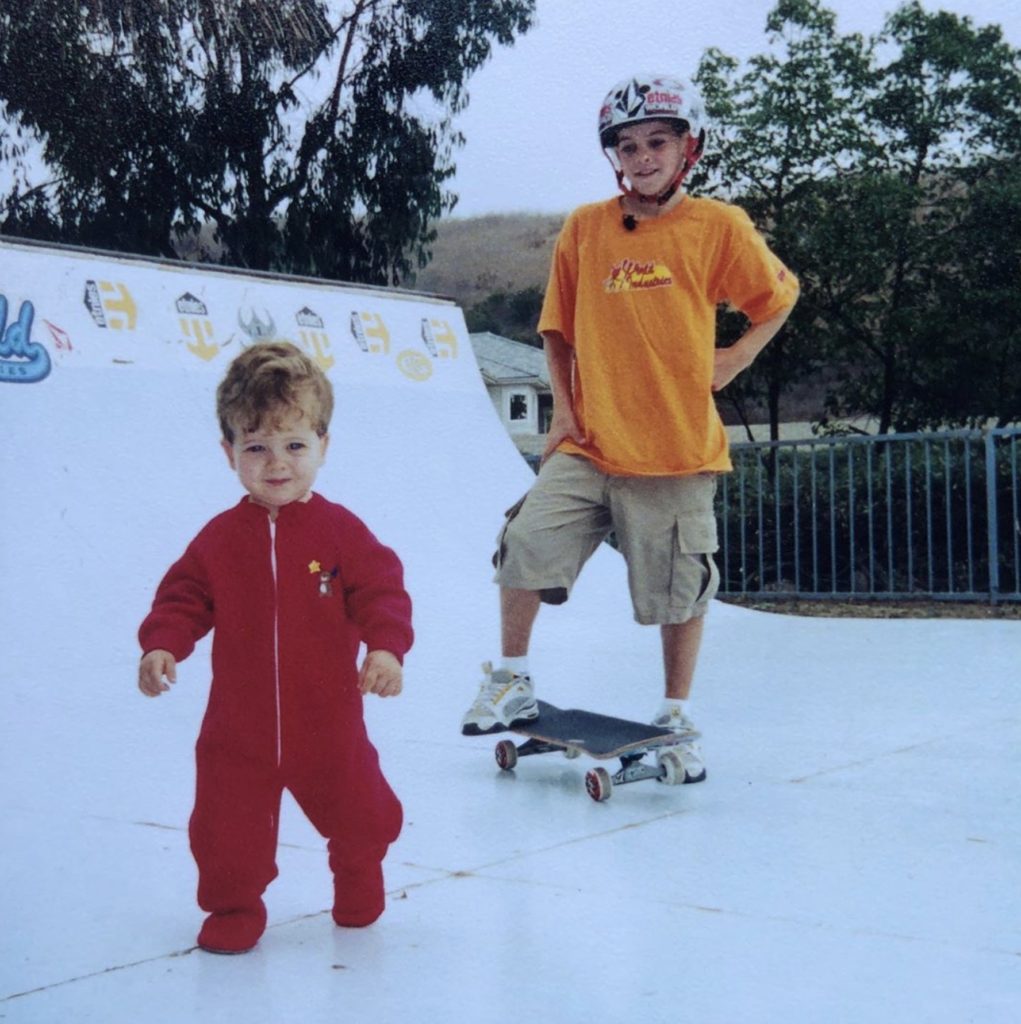
I was so in tune with the Lord and going to church. And then I realized that skateboarding was my gift. That’s something I did. I didn’t know that was my gift because it came so fluently to me. Not easy, but fluent. It was like I could figure it out, you know? And around thirteen is when I started getting really kind of noticed from the world and the skate world, especially.
My goal was just to honestly—sounds crazy now—I wanted to be as good, if not better than, my neighbors. And my neighbors were all four years older than me. And so they were the big kids. I wanted to be like the big kids. A lot of them stopped skating, and I just never stopped. I never stopped. I was hooked.
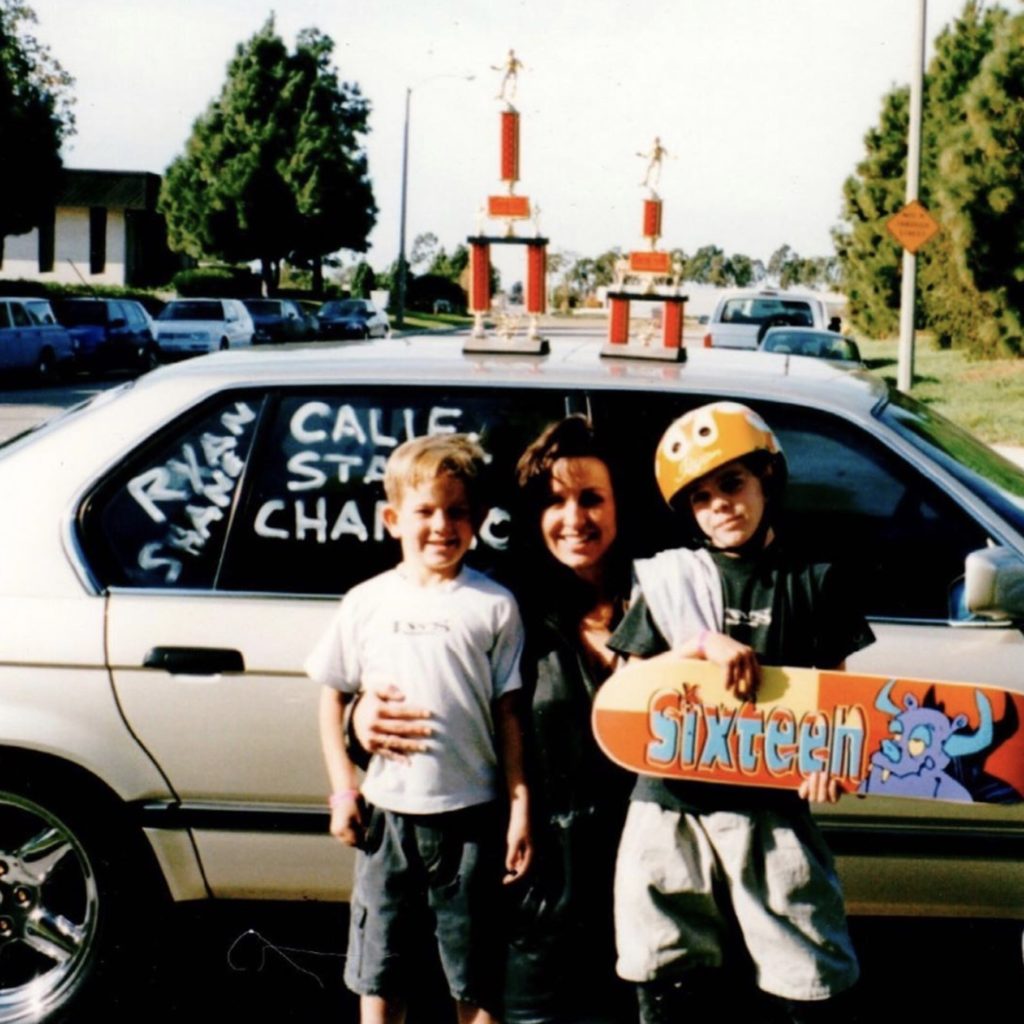
I turned pro. And I had no idea—I didn’t know I was turned pro at thirteen. I would goof around skating on my friends and tell them, “Twenty-one sounds like a good age to turn pro,” you know, like as a kid, I got to put the time in. I knew I had to put some serious time if I ever wanted to be pro, and I thought maybe twenty years would get me there.
And then I was thirteen, and then that year of thirteen, I won every single pro contest as the rookie. And then the doors just opened.
The Pressures of Turning Pro
All of sudden, I didn’t even realize that years went by where I had traveled six or seven months out of the whole year. And then it was just over. I’m eighteen and I’m buying a house. And I had no structure, no adult around, no one telling me, like, “Hey, guys, you shouldn’t party. Hey, you shouldn’t stay up this late. Hey, you shouldn’t do this.” There was no one telling me that. So we learned by ourselves.
And I feel that from thirteen to eighteen, to twenty-two, maybe, I kind of fell out of track with the practice of praying and the practice of actually getting to know Christ and and really living, believing that He was dictating my life. I really thought I was in control.
The huge step for me was admitting that I was powerless and I couldn’t do it without Him. I could not do anything else without Him. My life literally got into shambles. It was like there was too much going on.
“The huge step for me was admitting that I was powerless and I couldn’t do it without Him. I could not do anything else without Him.” – Ryan Sheckler
When you’re in the state of abusing any substances, for me, it was alcohol. When you’re in that state, your brain does this weird thing where it won’t even allow you to have the chance to say no. It’s not even a thing, like, You shouldn’t have a drink. But my brain’s not doing the whole thing of like, Well, let’s break it down. Here’s the pros. Here’s the pros. Here’s the pro. Here’s the cons. Like all the cons. You don’t do that without an alcoholic mind. It doesn’t do that. All right. Well, I guess we’re I guess we’re gonna have a drink. And then it’s that whole backstep process.
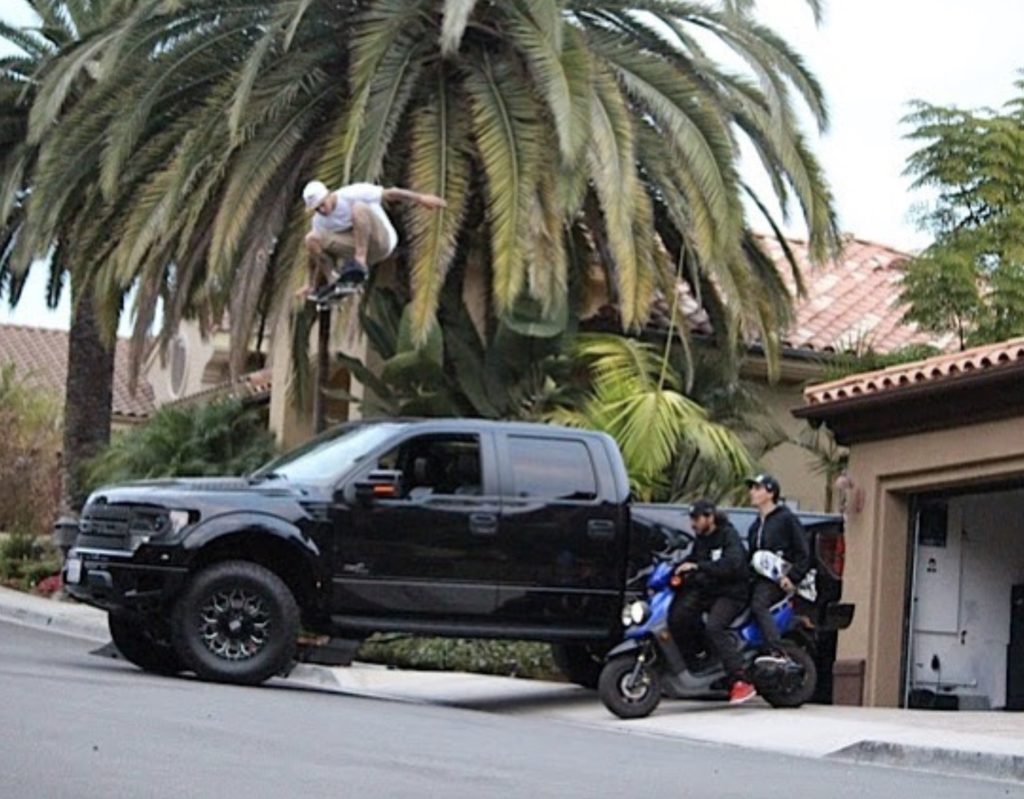
And for me, I always had super good friends around. I had amazing friends around. And they couldn’t really see that it was a problem because I was getting my stuff done. You know, it’s still being functional. I’m still doing it. But, yeah, I got caught up. I got caught up. And like I said before, that was from having really no guidance. I had no guidance. We had friends that wanted to hang out. And it was cool because we were going on private planes and we’re getting invited to all this cool stuff.
And, you know, you kind of lose track of reality. And as a kid with no baseline for how an adult is supposed to be, I don’t know where I was. But I’ve always had this incredible group of friends.
When I checked into rehab, my mom, she picked me up from the airport, which was a really traumatic and scary experience. But it was the best experience of my life, you know, watching my mom turn around and leave me at this place that was supposed to help me. And watching her turn out of the gate gives me the chills. You know, it makes me want to cry because I was so gnarly, but that was it. The second she turned her car out and I was a wreck. I had absolutely hit a wall and decided that I needed to fix something, because I had started to lose my passion for skateboarding. I’ve been skateboarding since I was two years old. And all of a sudden, this alcohol is going to take me away from the biggest passion of my life. No, it wasn’t acceptable to me.
We Never Walk Alone
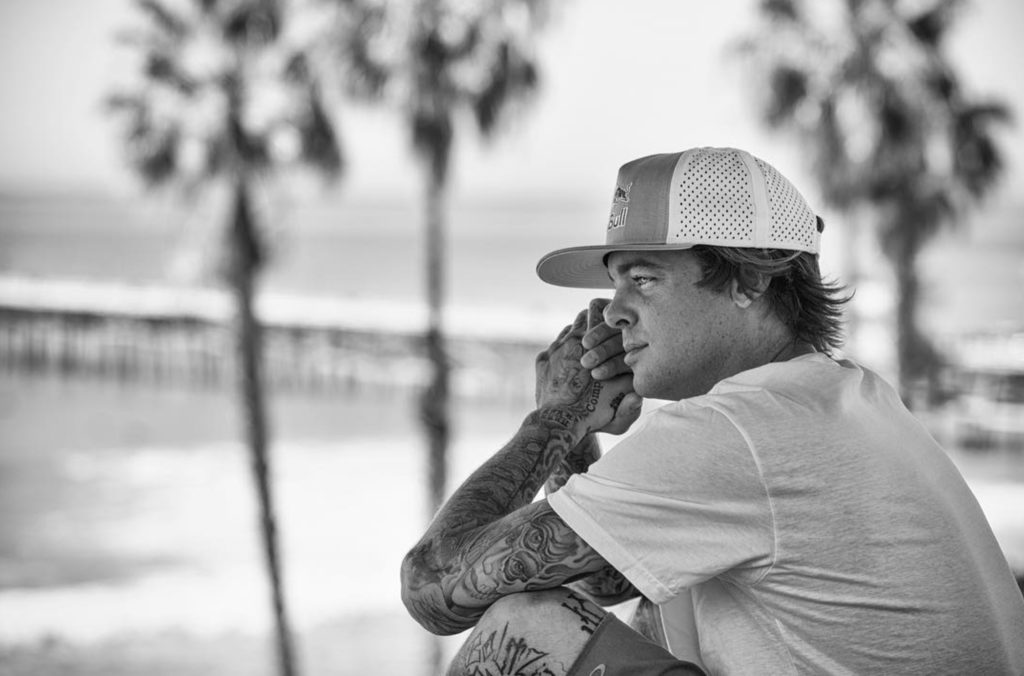
I was an emotional wreck. I got this wave over me that was just “You’re good. You’re in the right spot. Thank you for listening. I’m gonna help you.” And then it was on. It was on. I had no detox days, no nothing. I just stayed the first night, went straight on the meetings the next day, right in the group and just being vulnerable. And that’s the biggest thing, too. I learned from my experience that recovery was being vulnerable. It’s not lame to be vulnerable. It’s not bad to tell people how you’re thinking or to really express emotion, or to cry. That’s what we’re supposed to do.
“It’s not lame to be vulnerable. It’s not bad to tell people how you’re thinking or to really express emotion, or to cry. That’s what we’re supposed to do.” – Ryan Sheckler
My mom gave me Jesus Calling right when I got there. And that first night, I started reading it, and I didn’t even pick a day. I just started reading it. I just wanted to feel something. I started feeling it, and then I read it every single day that I was there.
So my mom had been reading Jesus Calling to us, like, she would send me little excerpts on my phone. So I knew about Jesus Calling. I just never had my own book. And then once I got it at rehab, I did read the first day that I was there. It was on February 3rd. And that’s crazy. I just started reading this again. And, like, this is crazy, actually. This is crazy.
I am with you and for you. You face nothing alone—nothing! When you feel anxious, know that you are focusing on the visible world and leaving Me out of the picture. The remedy is simple: Fix your eyes not on what is seen, but on what is unseen. Verbalize your trust in Me, the Living One who sees you always. I will get you safely through this day and all your days. But you can find Me only in the present. Each day is a precious gift from My Father. How ridiculous to grasp for future gifts when today’s is set before you! Receive today’s gift, gratefully, unwrapping it tenderly and delving into its depths. As you savor this gift, you find Me.
“You face nothing alone.” You know, that’s why I got that crazy sense of calm when my mom left and was searching the room. And obviously, you had to do all the intake and all that noise. But like, once you actually get to get into your room and have that first, like, Okay, I’m here. Now what? And then I opened this book and saw that I wasn’t alone. And like, I’m in the right spot.
Five days after being there, I got a call from Michael Phelps, who was a friend. And he was very proud of me for being in there. And then he sent me a couple of Rick Warren books, and he sent me another copy of Jesus Calling and explained to me how he went through similar things. And in my mind, I’m like, This is Captain America, Aquaman. This guy went through what I’m going through?
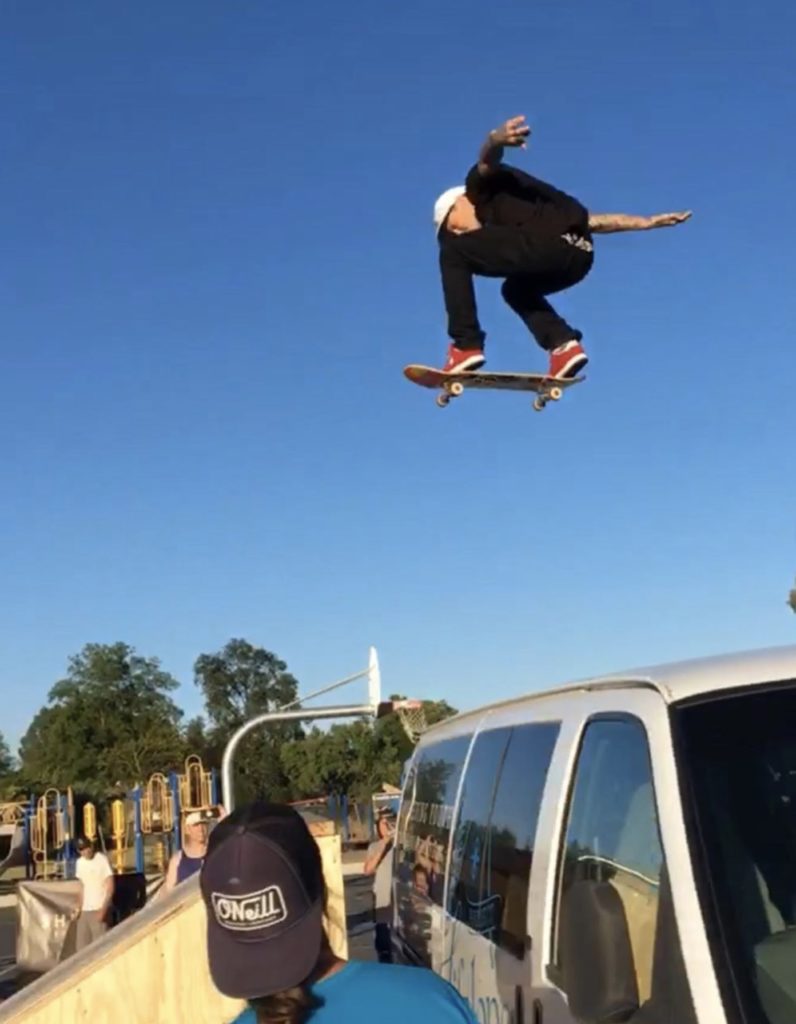
And then it clicked. I’m like, Oh, none of us are alone in this world. We’re not alone. And we’re supposed to go through this pain to be able to teach this lesson. I can’t waste the pain. I do not want to waste the pain that I’ve been through. So whether that means through this experience, through an injury coming back, how can I help you recover from your injury? Because I’ve been through it. This is part of my ministry. Honestly, it’s like being in the place I’m in now from being through what I’ve been through, I can share it and I love sharing it. And kids come to me and they ask me for help.
“None of us are alone in this world. We’re not alone. And we’re supposed to go through this pain to be able to teach this lesson.” – Ryan Sheckler
Everyone’s going to go through pain. We all go through pain. For me, pain is my teacher, my biggest teacher.
“Everyone’s going to go through pain. We all go through pain. For me, pain is my teacher, my biggest teacher.” – Ryan Sheckler
I went to the program, and then just learned. I learned everything I needed to do and everything I needed to be and become to have this next chapter, which is, you know, my thirties to sixties. See what happens here. I wouldn’t have been able to do it without the Lord. And it’s a struggle. But if you really submit and give your life to Christ and just really believe daily that you get another chance, you can make some good decisions.
“If you really submit and give your life to Christ and just really believe daily that you get another chance, you can make some good decisions.” – Ryan Sheckler
And you know, that’s been one of my huge things, coming out of that whole process, was; be where your feet are. So simple, be where your feet are, which means right here, right now, I’m not thinking about anything else. I’m here in this room with you guys doing this. And that keeps me present. That keeps me in the mode. And I just find myself saying that to myself all day long while we stand somewhere thinking about something else. What are you doing with your feet? And the second I calm down and realize where I’m at and I’m present, then things start happening. But it’s not until you’re present. It took me thirty years to learn.
Helping Others with the Sheckler Foundation
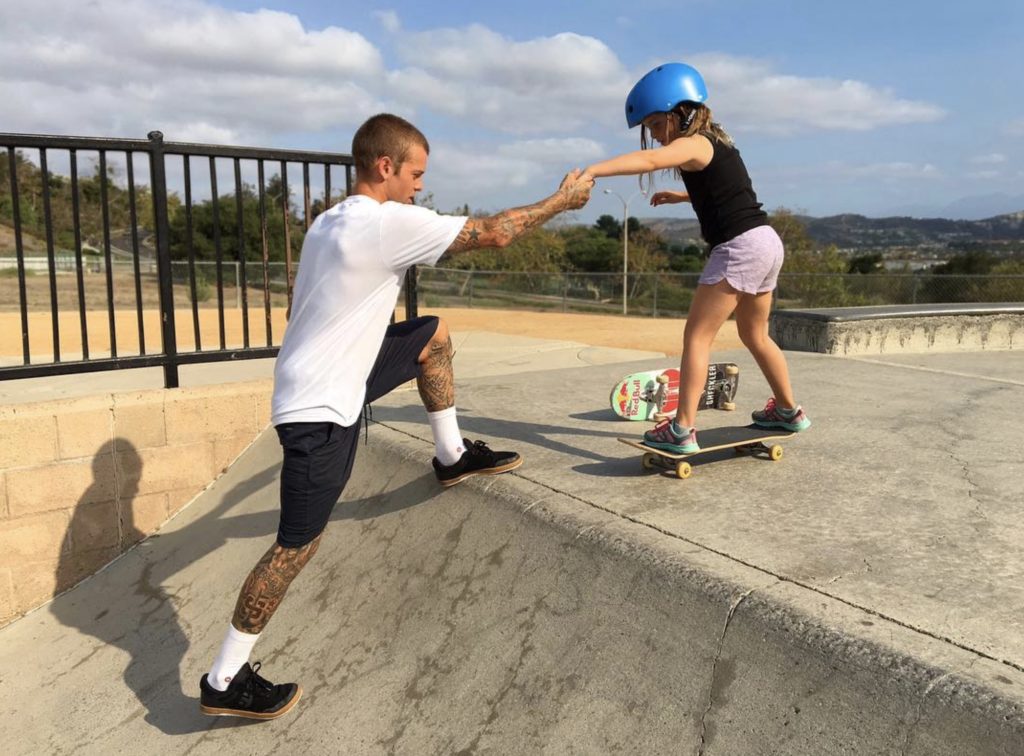
I went to a Make-A-Wish Foundation event where I got to grant a wish. And I was seventeen years old and I was trippin’ because I couldn’t fathom that this beautiful girl, Casey, who had been battling with leukemia and chemo and just the gnarliest things, wanted to hang out with me at a skatepark for her wish. Yeah, I was pretty nervous. I didn’t know what to expect. And then I met her and we’re only supposed to talk for like an hour and we hung out all day. We hung out all day and just got to know each other. And it was so special to me. And she told me that the reason she wanted me to be her wish was the way I treated my family when my parents got a divorce on my MTV show. And that wasn’t even something I noticed I was doing. I just care about my family. So I kept my brothers real close and I made sure that, like, Okay, this is going on. Like, we’re gonna stay tight. And she saw that.
And from that experience, I came home and I was just bawling. “We have to do something. We have to give back. The fact that I have this career right now and I’m seventeen years old—I almost feel greedy. We need to give it back. We need to give back.” And that’s when the Sheckler Foundation started. And our first thing was auctioning off my Range Rover, which I loved, you know, but it was material. That’s what it is. And we auctioned it off.
And then I realized that I really liked working with autistic children. They’re so pure, so fun. And just the smiles and the laughs you get when you drop in with them, they laugh with their belly. It’s a really wild experience because their parents start crying because they never heard their kid laugh.
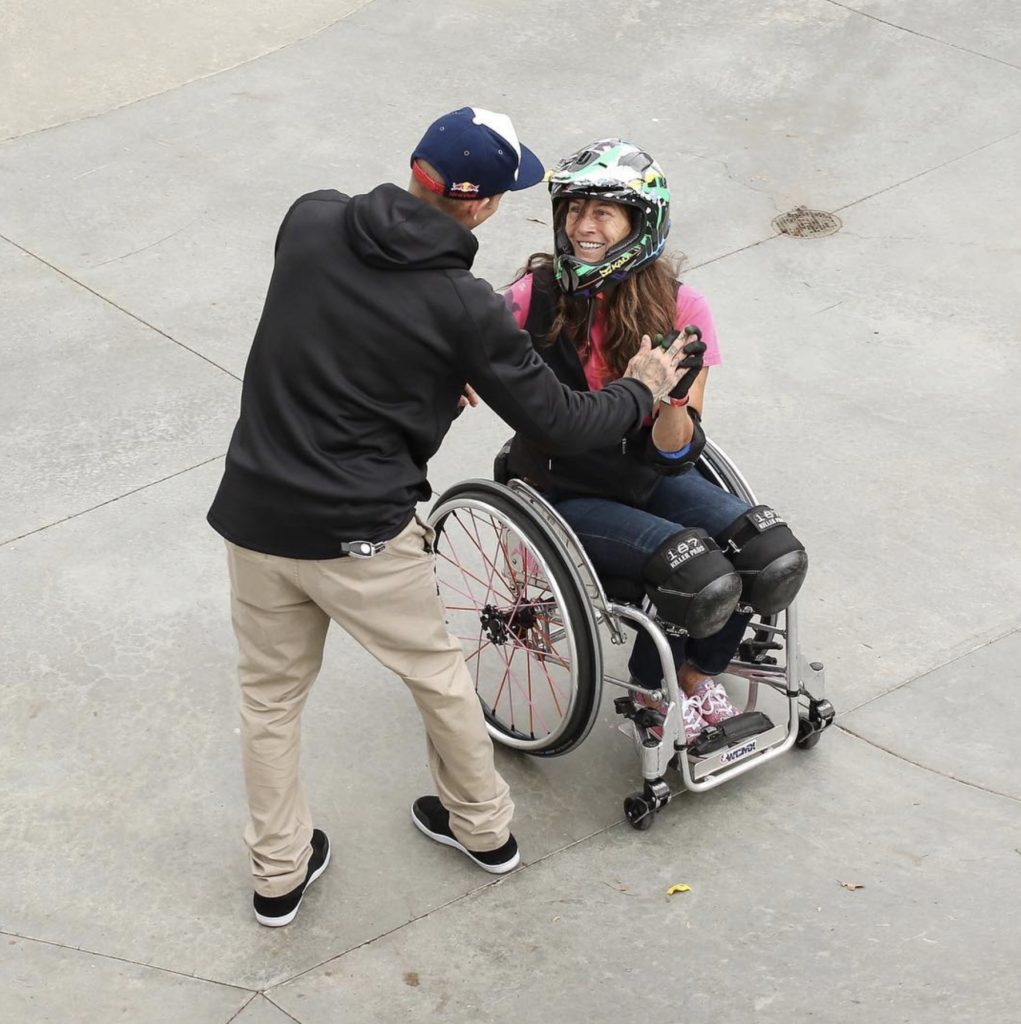
The foundation now has been going on for almost thirteen years. Yeah, about thirteen years. And our main thing is to be the change. And be the change is simple, like, if you see someone hurting, just go help them. Be the change you want to see. You know, what change you want to see in your community, the way people are treating each other, it could even be community service or like a plan. Do you want to see change? You actually just go out and be a part of something like be a part of where you live.
You know, I grew up as a Christian. I went to church. I believed. But I didn’t understand what it meant to really believe that Jesus died on the cross for my sins. I had heard that. And I knew about that. But I didn’t know, I didn’t feel it. I didn’t really feel that when I envisioned it. And when I really got deep into my mind visualizing the Lord and Him on the cross and bleeding, that’s when it hit me. That’s when it hit me that I really am forgiven for my sins, like, I’m forgiven daily and do not waste it.
Each day is another chance to do better than you did the day before. And that’s really how I’ve been living the last like the last five years, five and a half years has really been focused on the Lord and really trying to follow His will for my life. And it’s the craziest thing. It’s so special. It’s awesome. I’m really here for a reason. I know it.
Narrator: To learn more about the Sheckler Foundation, visit ShecklerFoundation.org today.
Stay tuned for Henriët Schapelhouman’s story after a brief message.
100 Jesus Calling devotions for peace and joy have been selected for the special heroes in our lives. There are hardcover editions for Medical Professionals, Firefighters, Law Enforcement and the Armed Forces. Find the Jesus Calling editions for First Responders exclusively at ChristianBook.com.
Narrator: Our next guest is the pastor of True Hope Community Church, Henriët Schapelhouman, who opens up about her unique relationship with God and how she followed her calling into ministry—despite obstacles that made her feel as if she didn’t belong. As Henriet’s faith grew, it was tested greatly when her adopted son, Harrison, battled a debilitating addiction. After years of praying for Harrison and grappling with why God would allow this to happen, Henriet ultimately helped her son turn his life around and saw her prayers answered as her son’s faith in God was restored.

Henriët: My name is Henriët Schapelhouman, and I am the pastor of True Hope Community Church. I am a mom, a wife, and I have my own coaching business, and I do lots of other things. I was born in the Netherlands and grew up there until I was sixteen years old.
And one of the weird things about me—and maybe there’s lots of weird things about me—was that I believed from a very early age. And then at eight, I very much remember telling people about Jesus. I was telling people about God because He was real to me. I spoke to Him. He was real in my life, so I talked about Him as if He was a real person, which He was to me. But apparently that was really strange in my culture and in that time, I just didn’t know any better. I talked to God, He answered me, and it was just normal and it was just part of everyday conversation for me.
Called to Be a Pastor
It’s an interesting journey, actually. I got married at eighteen, and we went to that church. I love the Bible and was just really thinking, If I wasn’t a woman, it would be so great because I could be a pastor. Then God led us from the church, we were going to Mennonite Brethren Church—we lived in San Jose at the time—but God called me there into ministry. It was a half-day of prayer and I’d been kind of forced to attend that. And for me, I was like, What do you do for half a day praying? That seemed like forever to me, and I’d never done that before.
Well, surprisingly, the time went really fast. I took a walk, praised God. I read through a hymnal. I prayed through my list. So after doing all those things, I sat just content with God and thinking, Wow, this is cool. And I was just quiet. The sun was coming through the windows. And suddenly, out of nowhere in my head, I heard almost like an audible voice. “I’m calling you to become pastor to women and to go back to school.” And I trembled for about two hours after that. I’ve never done that before. Never done that since.
I asked God two prayer requests. I wanted to make sure it wasn’t me calling myself. And He answered both of those in twenty-eight hours. It would mean quitting my job, so that would be an income issue. And He was supportive. The other thing that I’d prayed about prior to the call was that somebody would be called to become the Sunday school president of the adult Sunday school class. And that happened the next day. They asked me to be the president of the Sunday school class. I went home, actually, from that call and went straight to the senior pastor. I explained to him what had happened. And he said, “Well, it’s clearly a call from God and we just have to figure out how to make that work.”
We had more prayers confirmed. And it was clear we need to move here. So in November ‘93, we moved to Redmond, Washington. And at that point, we had to look for another church, and they didn’t have Mennonite Brethren Church here. So we started on a whole quest like, Okay, God, you moved us here. I believe the call was still on my life. Where am I supposed to be? So we attended different churches, church shopping, and we really didn’t like it. And I got sick of it at some point and I took out the Yellow Pages.
And I circled all the possible churches and I called them and I asked what was happening. And a lot of them had women’s ministries already all sorted out. And I kind of felt like, Okay, so there’s no space. I called this one church, which turns out to be a Free Methodist church, but I didn’t know what that was. So I called them and they said, “Well, we’re in the process of figuring out our women’s ministry. And also we’re in the process of figuring out the small group ministry,” which both of those is what I’ve been doing. I was like, This might be the clue. So we visited there and we really liked it. And then we visited there again and we felt like this is what we’re supposed to be.
The Loving Choice of Adoption
So my husband and I had been trying to get pregnant and that wasn’t working. So about ten years after we were married, we started pursuing adoption because we’d done everything up to in vitro. And we contacted the adoption agency in California and started the process. So it was an open adoption. We wrote a letter and we were chosen by this mom in May ‘92. And Harrison was born in June ‘92.

I knew beyond a shadow of doubt that Harrison had been selected for us, that this was the child God has for us. I remember at seven, we were driving somewhere, and he was sleeping in the back seat. And I was thinking, He’s just the perfect child. He is so wonderful. He is loving and kind and generous and funny and just wonderful.
And he was seven, and then at eight, an anger started to develop. And that kept growing. We had had those conversations throughout his life, basically. He knew he was adopted and he knew we loved him. That wasn’t the question. But at four or five, he was saying something about that he had come out of my stomach, and I told him no. And we kind of talked about that. And he was angry. He was hitting something, I forget what. And I said to him, “Harrison, do you think I would love you more if you came out of my stomach?” And he indicated that probably was the case.

And at that time, there was more cognitive [awareness] that somebody had rejected him. I think he really struggled with the abandonment and rejection. We didn’t know that until later. But that was the issue. And in fact, at eight, he self-reports, he started taking sips of alcohol. We just didn’t know that. And then at eleven, he started drinking more. We didn’t know that either. And by thirteen, fourteen, he started using marijuana and was still drinking. I knew about the marijuana and I didn’t really know about the drinking. I learned about the drinking when he was in ninth grade because he got kicked out of a Christian school for bringing half a gallon of tequila to school and going off campus and drinking with other kids. And I didn’t believe it. I just thought they were being ridiculous.
But that’s when we pulled him out of school and I started homeschooling him. But then as the addiction progressed, he got in trouble with the law and he got into juvenile drug court and was sent to treatment.
I remember praying and saying, “God, why is this happening?” And I said, I’m talking out loud—in fact, probably shouting, saying, “God, why didn’t you just tell me seventeen years ago instead of this?” And then saying to Him, “How can you ask me to sacrifice my son, my only son?” And it helped me to just thank Him for the experience, because it allowed me to understand the pain and grief God must have gone through.
Dealing with the Scars of Trauma
At seventeen, he was still in drug court. He became a better addict, a better user. He became better at breaking the law, better at getting around the rules. He went to at least ten plus detoxes, six treatments, and none of it worked. He completed some. He bailed out of others.
I always was in drug court with him and was there to support him, try to help him choose the right things. Harrison accepted Jesus when he was three and was baptized in fifth grade by me. So he believed. But he had turned his back on God. I’m a firm believer that the road home needs to stay open, just like the father of the prodigal son stood waiting for his son to return. We need to have the road open. And so we just made the rule, “Harrison, you’re welcome home at any time. But if you choose to use, you choose to leave.”
“I’m a firm believer that the road home needs to stay open, just like the father of the prodigal son stood waiting for his son to return.” – Henriët Schapelhouman

I just knew I needed God and I needed God to fix this. And I needed help. I needed prayer. And so I would send prayer requests out to my email list of thirty-five people and they would pray and things would continue to get worse. But my faith also grew. I remember laying on my hardwood floor in my office just sometimes for an hour, even with my head on my arm, just praying, “Jesus, please help me, Jesus, please help me.” And crying, because what else is there to do when your child is just completely blowing up his life? Nothing works. There were also other things God showed me in this process. But Harrison’s life continued progressing in the drugs. People thought it was enabling, but I was a firm believer that my job was to hang on to God and hang on to Harrison, that I basically was between them because Harrison wasn’t connecting with God. So I felt like I was the conduit. And that was my job.
“People thought it was enabling, but I was a firm believer that my job was to hang on to God and hang on to Harrison, that I basically was between them because Harrison wasn’t connecting with God. So I felt like I was the conduit. And that was my job.” – Henriët Schapelhouman
Finding the Road from Addiction to Jesus
During that time, I had written my book, The Story Lives: Leading a Missional Revolution. It’s all about that everybody has a story and that our stories are meant to be told so people can see them so that people can find a road to Jesus. Like, I know Jesus and the Bible says that Jesus can heal. I believe He’s going to heal Harrison, that He has a plan for his life. And I’m not giving up on that. And I believe it’s going to be through prayer and through His people.
God allowed Harrison’s appendix to burst. That’s when he called me in a panic to come get him. He didn’t want to go to the emergency room or anything like that. So we didn’t actually know at that time what it was the following week. I did get him to go to the emergency room. They knew something was wrong. They transported him to the hospital. But they saw an addict and they didn’t see a patient. And so they treated him like an addict and they weren’t willing to work with him and adjust based on what he could handle. So he left against medical advice.
And for a while, it got better because his appendix had burst. So all that pain was less, but then it got worse. And I would sit with him and God had given me Psalm 91 as a promise about Harrison. And it’s clear that he’s dying. He’s saying himself, “I’m dying.” And I’m saying to God, “Lord, he’s dying, but I know he can’t be dying because you said that you were going to rescue him and show me your salvation.” He couldn’t function and we didn’t know what was wrong.
And Harrison said, “Okay, I will do whatever you tell me. I’ll go to treatment, if that’s what you think I should do. I’ll go to the hospital, if that’s what you think I should do.”
So we felt like, “You know what, we need to go to Harborview.” So we convinced Harrison, we got him in the car. The last ten minutes of our drive, randomly, Harrison hits the dashboard and says, “God help me.”
And I’m thinking, Okay, here we go. This is it.
So we arrived at Harborview. They took him into surgery and discovered he had lived with a burst appendix. And they said, “A couple more hours and his small intestines would have burst, and it would have been a horribly painful death.”
So for four months, he was trapped. We set up a bed in our living room. I stayed with him. I managed his meds. And that month was enough for him to decide that he wanted a different life. And that’s his journey to sobriety.

Oh, he is very hopeful. He is passionately in love with Jesus and he prays all the time. He listens to his Bible all the time. And his faith is super strong.
So I’m reading from Jesus Calling, August 30th.
There is no place so desolate that you cannot find Me there. When Hagar fled from her mistress, Sarah, into the wilderness, she thought she was utterly alone and forsaken. But Hagar encountered Me in that desolate place. There she addressed Me as the Living One who sees me. Through that encounter with My Presence, she gained courage to return to her mistress.
No set of circumstances could ever isolate you from My loving Presence. Not only do I see you always, I see you as a redeemed saint, gloriously radiant in My righteousness. That is why I take great delight in you and rejoice over you with singing!
Without Jesus, I would not be standing. I mean, first and foremost, you need Jesus. And if you don’t know Jesus, it’s a great time to reach out to Him or at least reach out to someone who knows Him.
“Without Jesus, I would not be standing. I mean, first and foremost, you need Jesus. And if you don’t know Jesus, it’s a great time to reach out to Him or at least reach out to someone who knows Him.” – Henriët Schapelhouman
Narrator: To learn more about Henriët’s work, please visit henrietschapelhouman.com.
If you’d like to hear more stories about the power of faith in overcoming addiction, check out our interviews with the brave women of The Next Door addiction treatment center.
Narrator: Next time on the Jesus Calling Podcast, we speak with writer and evangelist Angus Buchan. Honing his skills in the field of agriculture, Angus was known to be a hard-working, hard-drinking man. Dealing with the rigors of running a farm in Africa through droughts, financial issues, and a cancer diagnosis, Angus came to a moment in his life where he had reached the end of his own strength to keep moving forward. He talks about an encounter with God that turned everything around.
Angus: My business was going bankrupt. My marriage was finished. I had terminal cancer and Jesus healed me. I had never seen anything like this. And I sat there with my mouth open and then right at the end, one of the laymen said, “If you want Jesus to be your Savior, we want you to come forward now.” And I stood up, my wife Jill, and all our children, just like a gander, a goose, and all the goslings. And we walked straight to the front with lots of other people. And that was the defining moment of my life.
